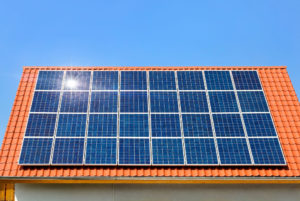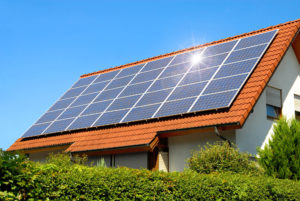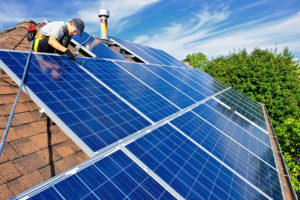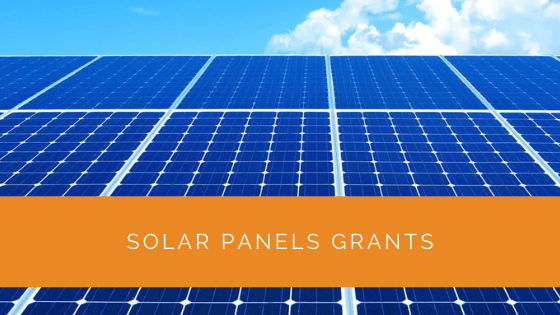Solar panels have emerged as a promising solution for reducing electricity costs and carbon footprints. In this informative guide, we will demystify the concept of solar panel grants, explore the various schemes offered by the government, and provide insights into how you can benefit from solar energy in your home or business.
The UK government has been actively promoting solar panel installations, aiming to make renewable energy more accessible and sustainable. While traditional grants for free solar panels may have dwindled, alternative schemes like the Smart Export Guarantee (SEG), Feed-In Tariff (FIT), and Renewable Heat Incentive (RHI) offered enticing opportunities to harness the power of the sun and save on energy bills. Join us on this solar journey as we navigate the incentives, dispel myths, and empower you to make informed decisions about embracing solar energy in your life.
Contents
- 1 Key Takeaways
- 2 What Are Solar Panel Grants?
- 3 Renewable Energy Sources Available in the UK
- 4 What Happened to The Green Home Grants?
- 5 The Solar Incentives Available in the UK if You Install Solar Panels
- 6 Free Solar Panel Schemes – a Myth?
- 7 The Availability of Solar Panels
- 8 Are Wind Turbines Worth it?
- 9 Case Study: Maximising Solar Energy Benefits with Government Grants
- 10 Expert Insights From Our Solar Panel Installers About Solar Panel Grants
- 11 Discover the Power of Solar with Solar Panels Network
- 12 Summing Up
Key Takeaways
- The UK government has been promoting renewable energy, including solar panels, as part of its efforts to reduce greenhouse gas emissions. While no free solar panel grants exist, incentives, such as the Smart Export Guarantee and the Feed-in Tariff, are available.
- The Smart Export Guarantee (SEG) allows homeowners with solar panels to sell surplus energy to the national grid, providing a potential return on investment. Although closed for new applications, the Feed-in Tariff still benefits existing participants by providing incentives for solar electricity generation.
- The Boiler Upgrade Scheme (BUS) is a recent initiative designed to support the installation of low-carbon heating systems, including heat pumps and biomass boilers, with grants of up to £6,000.
What Are Solar Panel Grants?
Through traditional Government grants, you could hypothetically get free solar panels installed in your home. The Government will financially support the electricity bills generated from the solar PV systems. However, it does seem too good to be true.
Ideally, there are essential solar panel grants, but they do not offer financial support.
The Government has been pushing for solar panel installation in every industrial and residential sector. So, having grants would inspire people to install solar PV panels.
Due to this, they have created some solar panel schemes that will intrigue numerous people. Some cater to domestic solar panels, whereas others offer incentives for businesses using solar power. Even then, over the last two years, the extent of these grants in the UK has been scrapped.
In turn, the UK Government reduced the cost of solar panels. One such example would be the discontinuation of the Feed-in Tariff (FIT) in April.
Even Ireland has a Northern Ireland Renewables Obligation funding mechanism, which acts as the Irish FIT.

Renewable Energy Sources Available in the UK
Many homes in the UK utilise solar energy as their electricity source. It alludes to the recent developments in the availability and benefits of renewable energy sources. Moreover, the Government’s plan to generate solar power is becoming successful.
Harnessing the sun’s energy will bring down electricity costs and the overall waste of surplus energy. Hence, the Government grants created to enhance people’s efforts are fruitful.
Even if there is no longer an official Green Homes Grant for solar panels, there are incentives. This way, the British people are encouraged and inspired to get “somewhat” free solar panels. However, the incentives have decreased due to the increase in the popularity of solar PV.
As mentioned earlier, the solar panel price is diminishing due to the same. It means that the new users have a decreased upfront cost.
What Happened to The Green Home Grants?
This solar panel grant quoted a £10,000 voucher reward if landlords and homeowners in England worked on having energy-efficient homes.
With this, you could have a good incentive to minimise the excess energy generation. For example, it covered two renovation measures, which you cannot claim if it was already in process before application:
- Primary – Heat pumps, solar thermal, biomass boilers, etc.
- Secondary – Any upgrades to glazing or windows, etc.
You may think that – If this scheme continued, the Government would have levied the initial costs to install your solar panels. However, it closed in March 2021 and did not cover solar PV installation.
Instead, it covered the initial investment for solar thermal panels. The Green Home Grants got cancelled due to execution problems, which led to new schemes.
The Solar Incentives Available in the UK if You Install Solar Panels
Is there any free solar panel installation scheme available? What are the guarantees?
These two questions may have crossed your mind while considering the possibility of harnessing renewable energy.
As mentioned earlier, no official solar PV panel grants are available in the traditional aspect. However, the UK Government has promised to lower energy bills through their alternative schemes. They are:
Smart Export Guarantee (SEG)
The Smart Export Guarantee (SEG) was enacted on January 1, 2020. Did you know that the Smart Export Guarantee (SEG) is the only solar panel funding in development?
Indeed, the solar electricity generated under SEG will offer payments to those supplying to the national grid. Due to this scheme, you can buy solar panels with the promise of generating energy for your purpose and saving money in the long run.
It allows low-carbon electricity generators on a small scale to receive money from surplus energy. Therefore, all the power will go to the grid and, in turn, give you substantial ROI.
The Smart Export Guarantee is not officially or directly a government grant. However, energy suppliers of solar PV panels need to provide an export tariff. Similarly, homeowners with a 5MW capacity in their solar panels will be eligible for this scheme.
Do you want to harness SEG? Then, you will need to have a smart meter installed in your home that measures the excess energy produced.
Feed-In Tariff (FIT)
TheFeed-in Tariff was the oldest solar panel energy generation scheme, implemented in 2010. However, it closed for new applications two years ago.
Even then, those already registered with energy suppliers under the Feed-In Tariff scheme will benefit.
People who generate electricity through solar panels or wind turbines receive incentives for kilowatt-per-hour generation. Therefore, the Feed-in Tariff payments covered the energy produced by the solar thermal system. It also paid money for the electricity sent back to the grid via wind turbines or solar panels.
Indeed, generating solar electricity was a great way to save money. The funds received will depend on the size of your system and the technology type, along with its age.
In Feed-in Tariff, solar companies will adhere to two payment formats:
Export Tariff – The excess electricity that you can sell. (4.77p/unit) Export tariffs allow you to sell half the total energy you have produced.
Generation Tariff is the fixed amount paid for all the electricity produced. (6.38 to 13.88p for every kWh)
You can use the Energy Saving Trust to calculate the amount you earn from the FIT scheme.

Renewable Heat Incentive (RHI)
Did you want to heat your home using solar energy? Then, the Renewable Heat Incentive would have been the best grant for solar thermal panels. This scheme was introduced especially for the industrial sector but was extended for domestic use in 2014.
If you were sure about introducing solar thermal panels to your home, you should have done so before this grant ended in March 2022.
You needed to install a functional heating system from an energy supplier in your homes to avail of this incentive. Furthermore, the primary purpose of RHI was to allow people to switch to renewable heat technologies.
Some systems covered by the RHI were:
- Solar water heaters
- Pellet stoves
- Biomass boilers
- Solar thermal panels
Due to this, you could have minimised the electricity bill and saved up on energy while reducing carbon emissions. With this, you would have received seven-year support as they offered quarterly payments. However, having an EPC assess energy efficiency before applying for RHI would have been best.
The RHI scheme has now been replaced by the Boiler Upgrade Scheme (BUS), which offers grants for low-carbon heating systems, including air source heat pumps, ground source heat pumps, and biomass boilers. The grants can cover up to £6,000 of the installation cost.
Applying for these solar grants in the UK would have been easier if you had a Microgeneration Certification Scheme while installing the renewable energy source.
Free Solar Panel Schemes – a Myth?
A few years ago, installing solar panels for people who did not have a budget was the priority of the UK Government. Therefore, you could acquire free solar grants from any energy supplier. This way, you could save money right from the start.
Even so, in exchange for that, you would have had to rent your roof for at least 20 to 25 years. People used to ask themselves – Are solar panels worth that?
Some homes found that free solar panels, instead of offering their roofs, were a good deal. Essentially, you would have allowed the company to sell the energy for some maintenance and installation.
Since 2021, such grants are no longer valid. The main reason behind these grants was the expensive nature of solar panels. However, solar panels have become affordable, and maintenance costs have also diminished.
So, what is the next best thing? RHI and SEG schemes, along with the existing customers of FIT!

The Availability of Solar Panels
The two types of solar panels are:
Photovoltaic Panels
These panels are made from polycrystalline components that have silicon cells. Moreover, it comprises wiring strips framed in metal and encased in tempered glass. Such solar panels can convert light into electricity and go perfectly on a south-facing roof.
Thermal Panels
Such kinds of solar panels work on UV rays rather than sunlight. Hence, the energy generation will be diffused due to the absence of the sun. These are great for heating purposes.
Are Wind Turbines Worth it?
Using a wind turbine to generate your energy is possible. However, using this to reduce energy bills will be a hassle in a domestic household. Why? Because of the considerable anatomy and the noise pollution.
If you are from the industrial sector, this could be possible. These turbines (6kW) cost £2,000 to a whopping £30,000, depending on the installation process. On the other hand, installing such solar panels will cost an average household of £6,000 to £7,000.
Hence, people choose solar panels over such problematic endeavours.
Case Study: Maximising Solar Energy Benefits with Government Grants
Background
At Solar Panels Network, we strive to help homeowners and businesses leverage solar energy efficiently while maximising the financial benefits through various government schemes. This case study focuses on a residential project where we helped a homeowner utilise solar panel grants and incentives to significantly reduce their energy costs.
Project Overview
The homeowner was eager to transition to renewable energy but was concerned about the initial costs of installing solar panels. They were particularly interested in understanding how government grants and incentives could offset these costs. We conducted a thorough analysis of available schemes and devised a plan to make the installation financially viable.
Implementation
- Initial Consultation and Assessment: Conducted a detailed site assessment to determine the suitability of the property for solar panel installation and the potential energy savings.
- Grant and Incentive Analysis: Identified and explained the various available schemes, including the Smart Export Guarantee (SEG) and the remaining benefits of the Feed-In Tariff (FIT) for existing participants.
- System Design and Installation: Designed a 4 kW solar PV system tailored to the property’s energy needs and optimal sun exposure.
- Application for SEG: Assisted the homeowner in applying for the Smart Export Guarantee, ensuring they would receive payments for surplus energy fed back into the national grid.
- Integration with Existing Incentives: Leveraged the benefits of the FIT scheme for the portion of the project that was eligible, ensuring continuous financial returns from energy generation.
Results
- Energy Savings: The newly installed solar PV system now generates approximately 3,500 kWh annually, covering a significant portion of the household’s energy needs.
- Financial Benefits: Through the SEG, the homeowner earns around £200 annually from excess energy supplied to the grid, offsetting a portion of the installation costs.
- Environmental Impact: The project reduces the household’s carbon footprint by approximately 1.5 tonnes of CO2 annually, contributing to broader environmental sustainability goals.
Summary
This case study exemplifies how strategic use of government grants and incentives can make solar energy adoption both financially viable and environmentally beneficial. By leveraging the Smart Export Guarantee and understanding the residual benefits of the Feed-In Tariff, we helped the homeowner achieve substantial energy savings and financial returns. Solar Panels Network remains committed to guiding our clients through the complexities of solar energy incentives, ensuring they can make informed and sustainable energy choices.
Expert Insights From Our Solar Panel Installers About Solar Panel Grants
Understanding the variety of grants and incentives available can make a significant difference in your solar investment. The Smart Export Guarantee (SEG) is particularly beneficial as it allows homeowners to receive payments for the excess energy they produce, which can help offset installation costs.
Senior Solar Installer
Many homeowners are unaware of the Renewable Heat Incentive (RHI), which provided quarterly payments for seven years to support the installation of renewable heat systems, including solar thermal panels. Even though RHI has ended, the new Boiler Upgrade Scheme offers similar support for modern low-carbon heating systems.
Lead Renewable Energy Consultant
The Feed-In Tariff (FIT) scheme, although closed for new applicants, still provides substantial benefits to those already registered. It’s crucial for homeowners to understand that these schemes are designed to make solar energy financially viable in the long term.
Solar Installation Manager
Discover the Power of Solar with Solar Panels Network
Are you navigating the world of solar installations? Look no further than Solar Panels Network, the UK’s trusted partner in harnessing the sun’s potential. Our dedication goes beyond just installations; we’re on a mission to transform how homeowners and businesses across the UK perceive and utilise energy. By choosing us, you’re reducing your carbon footprint and making a smart financial move that promises savings for years ahead. Contact us today and embark on your solar journey.
Summing Up
Solar panels are a great way to make the world sustainable. Therefore, the Government has done everything in its power to minimise the installation costs by offering incentives for the energy exported per kilowatt-hour.
Numerous households have successfully transferred their energy requirements to solar. However, there are no “free” grants to reduce the initial costs.
Once solar panels are installed, you can apply for a SEG scheme to harness the incentives. How do you get paid?
You will get paid with every extra power you send to the national grid! After reading this article, you can access all Government grants for solar-powered energy. Even then, some schemes are discontinued, so you better work fast!
Are you ready to introduce sustainable energy in your life?
About the Author
Solar Panels Network stands at the forefront of solar energy solutions, driven by a team of seasoned solar engineers and energy consultants. With over decades of experience in delivering high-quality solar installations and maintenance, we are committed to promoting sustainable energy through customer-centric, tailored solutions. Our articles reflect this commitment, crafted collaboratively by experts to provide accurate, up-to-date insights into solar technology, ensuring our readers are well-informed and empowered in their solar energy decisions.

